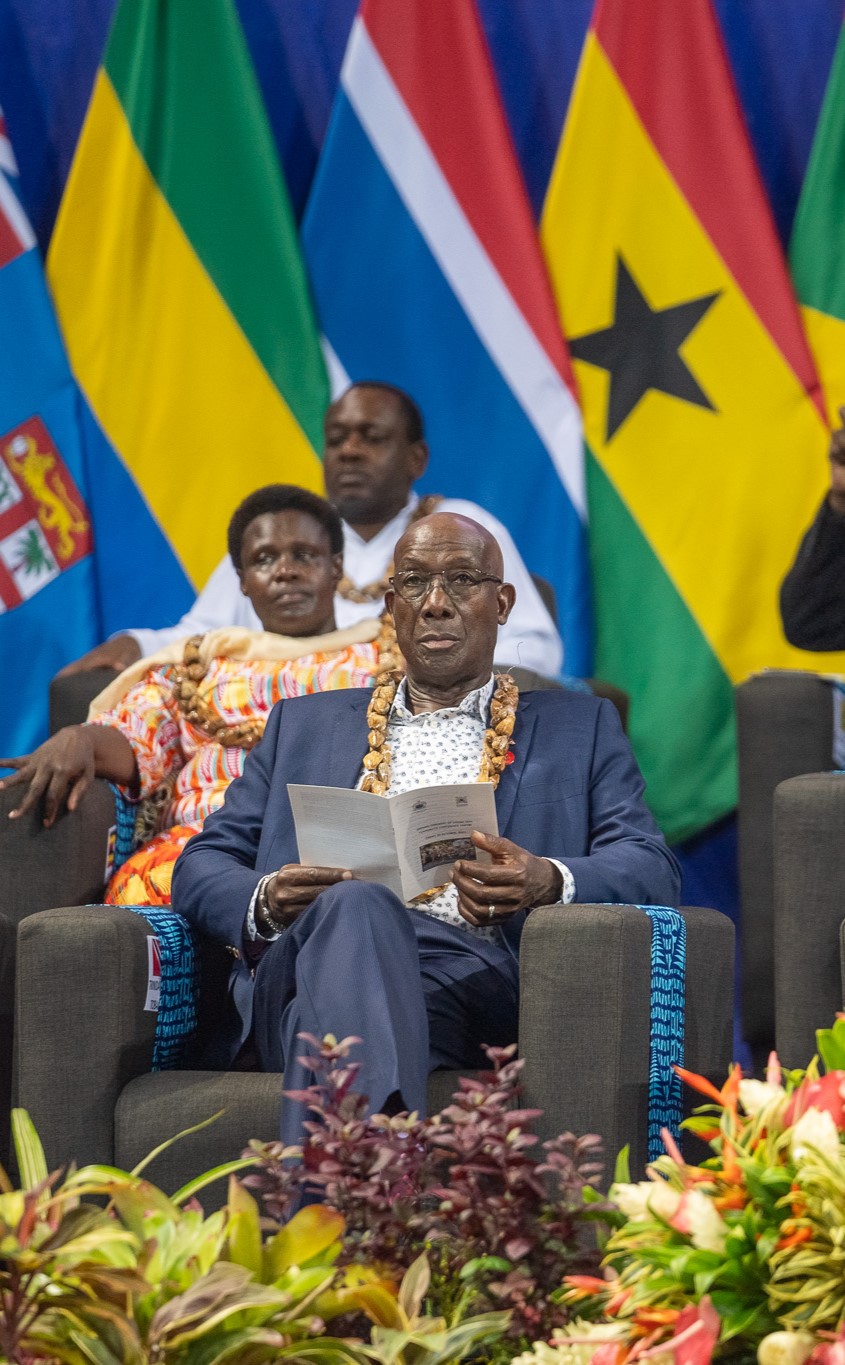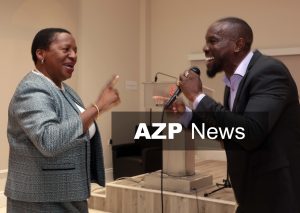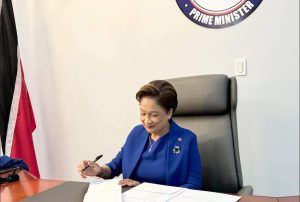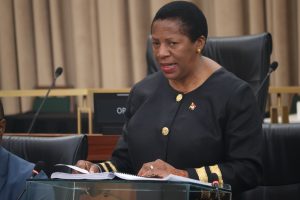Caption: Prime Minister Dr Keith Rowley at the Commonwealth Heads of Government Meeting in Samoa. Photo: OPM
By Prior Beharry
APIA, Samoa – During the Commonwealth Heads of Government Meeting, Prime Minister Dr Keith Rowley expressed frustration over opposition actions hindering potential investment in Trinidad and Tobago’s mothballed refinery.
While attending the meeting in Samoa, Dr Rowley highlighted a recent dining event with distinguished leaders, including King Charles III and Prime Minister of Barbados Mia Mottley.
He noted the Commonwealth’s acceptance of a report featuring O.P. Jindal Global University, contrasting it with criticism faced by Naveen Jindal, Chairman of Jindal Steel and Power Limited, in Trinidad and Tobago.
Dr Rowley criticised the UNC political leader Kamla Persad-Bissessar and Senator Wade Mark, for what he described as baseless attacks against Jindal.
The prime minister said, “The pride of place given to this photograph is where O P Jindal Global University, New Delhi is featured as described in the caption.
“Isn’t it ironic that at the same time almost to the hour, that Mr Jindal is presented to the Commonwealth in this way, he is being excoriated and slandered in the Trinidad and Tobago Parliament by the UNC, led by the usual suspects Wade Mark and Kamla Persad-Bissessar!.”
He said the prominent Indian businessman was interested in investing US$500 million in reviving the refinery. He argued that this investment would benefit local communities and the economy.
In June, Jindal had visited Dr Rowley at the Diplomatic Centre in St Ann’s after he had gone to India to woo investment for T&T.
In the wake of Dr Rowley’s meeting with Jindal, a 2013 Forbes report has resurfaced on social media, raising concerns over Jindal’s past. The report details allegations by India’s Central Bureau of Investigation (CBI) against Jindal and former coal minister Dasari Narayan Rao regarding the misallocation of mining rights.
At the time, Jindal was both the head of Jindal Steel and Power and a member of parliament with the ruling Congress Party. The CBI alleged that Jindal facilitated kickbacks to Rao in exchange for coal mining rights. Specifically, the report claims that Jindal’s firm secured a coal block in Jharkhand and subsequently invested US$430,000 in a company owned by Rao, purportedly as a payoff.
The circulation of this report has sparked debate over Jindal’s involvement in Trinidad and Tobago’s refinery project, with the opposition party using it to question the integrity of the potential investment.
On Friday, Dr Rowley said, “He paid a courtesy call for a few minutes and proceeded to put his technical people to work visiting the Guaracara data room in preparation for his group to put in a major proposal on the refinery restart operations.
“Eh heh! Who tell he to do that?
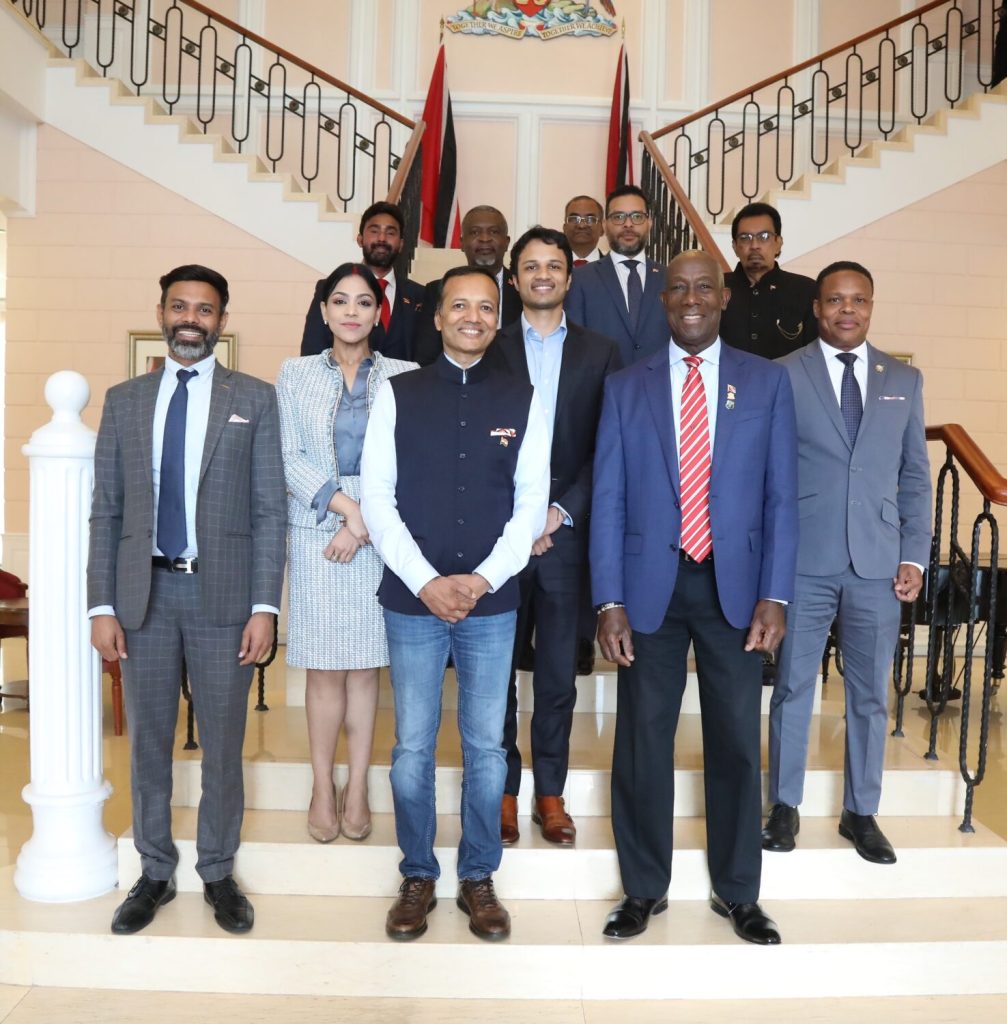
“The UNC heard about that. The last thing these miscreants want is for that refinery to be up and running! They don’t want that to happen! They want to have it there in its current state so that they could try to score political points by attacking the PNM by frequently mentioning its existence even when it doesn’t make sense (David Lee stump speech).
“What they fail to realize is that the PNM is quite satisfied that we have fixed a problem at Petrotrin. Heritage is up and running successfully and profitably paying billions in taxes and servicing the Petrotrin US$850million debt that threatened to bankrupt the country if the Minister of Finance had to take it over.”
The prime minister recounted his efforts to attract foreign investment, including a visit to India that sparked interest from business leaders. He said Jindal’s visit to Trinidad was facilitated by the foreign ministry and has been met with opposition criticism, which Dr Rowley sees as politically motivated obstruction.
He claimed the successes of Petrotrin’s restructuring, saying it was tyhe government’s responsibility to ensure viable investments.
Dr Rowley said, “Paria is up and running and making a tidy profit. We were never short of refined fuel for one day since the restructuring and the Ministry of Finance is servicing a separate $450 million legacy debt of Petrotrin whilst this latter company is now a holding company with profitable subsidiaries.
“That is how serious, sensible governments solve a problem. All that was left was the retired refinery temporary or permanent, we don’t know, but what we do know is that unless there is an investor willing to fund the restart and fund a supply of crude the refinery is not a good business for the taxpayers to re-enter.”
![]()


